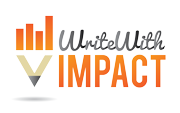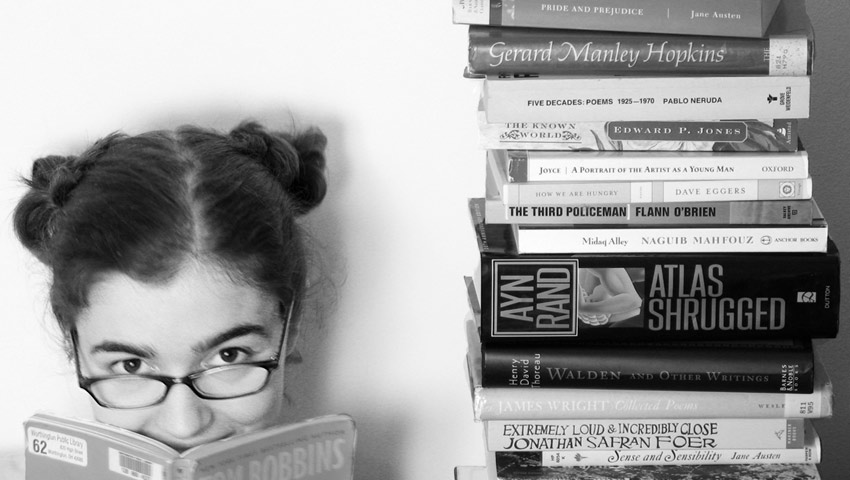Podcast: Play in new window | Download
One theme that has fascinated me for a long time is the power of books to inspire a person to pick up a pen and start writing.
Since launching my podcast on writing last Spring, I’ve interviewed over 30 authors of fiction and non-fiction. I like to ask my guests if they can name a book or author that at some point in their life inspired them to become a writer, or otherwise had an outsized influence on their writing career.
Some of them reach back to their childhood and recall the literary classics that awakened them to the power of great storytelling and the beauty of finely crafted sentences. Others point to books that gave them the inspiration, confidence, and practical guidance they needed to break free from their 9-to-5 jobs so they could pursue their lifelong dream of becoming a full-time writer.
Here’s what some of my guests have said about the books that helped them become the writers they are today:
Sarah Stodola — The Age of Innocence by Edith Wharton
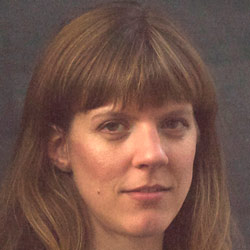 Sarah Stodola, author of “Process: The Writing Lives of Great Authors”, recalls how reading Edith Wharton’s “The Age of Innocence” in college changed the course of her career, and her life:
Sarah Stodola, author of “Process: The Writing Lives of Great Authors”, recalls how reading Edith Wharton’s “The Age of Innocence” in college changed the course of her career, and her life:
“It was the book that just kind of lit the spark under me and I remember all of a sudden realizing this is what I wanted to do. So it was a very black and white moment. Before that I wasn’t really needing to be a writer. I was a journalism major in undergrad and reading that book shifted my focus into wanting to do some more literary or creative writing.
The protagonist is this guy who’s kind of disillusioned with the social milieu that he’s existing in. At that time, I was in college in the midwest and I was jonesing to get out into the real world, and get my life going. I was also feeling disillusioned with where I was existing at that moment, so I really related to it in that way.”
Oliver Burkeman — Bird by Bird by Ann Lamott
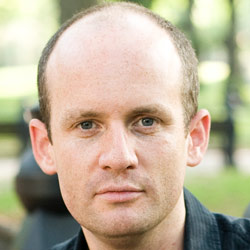 Oliver Burkeman, columnist for The Guardian columnist and author of “The Antidote: Happiness Who Can’t Stand Positive Thinking”, cites Ann Lamott’s “Bird by Bird” as a book that made a big impression on him.
Oliver Burkeman, columnist for The Guardian columnist and author of “The Antidote: Happiness Who Can’t Stand Positive Thinking”, cites Ann Lamott’s “Bird by Bird” as a book that made a big impression on him.
“The book is about this idea that you really can, in the privacy of your own mind, throw out a terrible first draft, and you don’t need to worry what people think about that. It also has all sorts of other tips and tricks to taking a non-intimidating approach to what is otherwise a pretty intimidating activity.”
Robin Rice — A Wrinkle in Time by Madeleine L’Engle
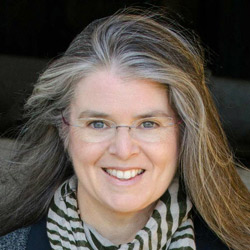 Robin Rice, author and coach to leaders from business and the arts, cites Madeleine L’Engle’s book, “A Wrinkle in Time”, as the book that captivated her at an early age.
Robin Rice, author and coach to leaders from business and the arts, cites Madeleine L’Engle’s book, “A Wrinkle in Time”, as the book that captivated her at an early age.
“I remember it being read to me a chapter at a time — excruciatingly so — once a week by my library teacher. The only part of school that I liked.
And I was actually fortunate when I was 13 my mom did a TV show and Madeleine L’Engle was on it and I was able to interview her directly.
I actually have a copy of “A Wrinkle in Time” tucked inside a special space under the desk in which I write, and she is one of my unspoken guides.”
Mark Vanhoenacker — Moby Dick by Herman Melville
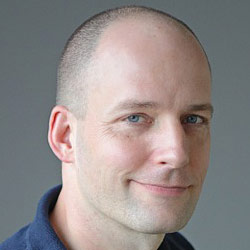 Mark Vanhoenacker, a 747 pilot for British Airways and author of the critically acclaimed book, “Skyfaring: A Journey with a Pilot”, grew up in the Berkshires in western Massachusetts, just an hour’s drive from Herman Melville’s home, where he wrote Moby Dick.
Mark Vanhoenacker, a 747 pilot for British Airways and author of the critically acclaimed book, “Skyfaring: A Journey with a Pilot”, grew up in the Berkshires in western Massachusetts, just an hour’s drive from Herman Melville’s home, where he wrote Moby Dick.
I’ve always loved Moby Dick. When I was writing Skyfaring I was really thinking about his nautical references and his nautical experiences and they were certainly a great inspiration to me as they have been to so many writers.
Monica Leonelle — The Chronicles of Narnia by C.S. Lewis
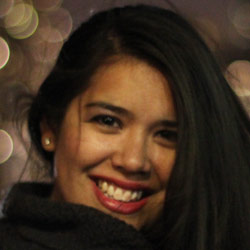 Monica Leonelle, novelist and author of several books on the craft of writing, says the first thing she would do after coming home from school each day was crack open a book and read for several hours. While she enjoyed several young adult series, she says C.S. Lewis’ “The Chronicles of Narnia” was a “magical” series that inspired her as a child.
Monica Leonelle, novelist and author of several books on the craft of writing, says the first thing she would do after coming home from school each day was crack open a book and read for several hours. While she enjoyed several young adult series, she says C.S. Lewis’ “The Chronicles of Narnia” was a “magical” series that inspired her as a child.
“The Chronicles of Narnia was just my absolute favorite series. I would re-read it almost every single year as a child. I loved it, I adored it. It was really huge when I was young, and it was just so magical for me.”
Shane Snow — The Autobiography of Benjamin Franklin
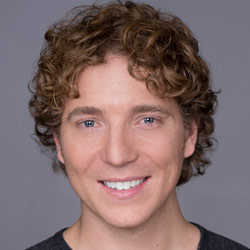 Shane Snow, journalist, co-founder of Contently, and author of “Smartcuts: How Hackers, Innovators, and Icons Accelerate Success”, credits The Autobiography of Benjamin Franklin as the book that inspired him to become a journalist and author.
Shane Snow, journalist, co-founder of Contently, and author of “Smartcuts: How Hackers, Innovators, and Icons Accelerate Success”, credits The Autobiography of Benjamin Franklin as the book that inspired him to become a journalist and author.
“Ben Franklin applied the same underlying thinking process to every project he did even though he did a wide variety of projects. He was this quintessential out of the box thinker, but he was very systematic about the way that he approached that what he did.
As someone who has a lot of interests, I realized that I could pursue a lot of those interests and combine them with writing as the foothold.”
Joanna Penn — The Success Principles by Jack Canfield / The Compound Effect by Darren Hardy
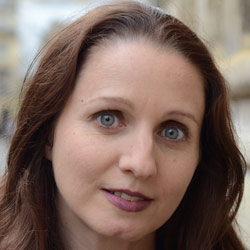 Joanna Penn, author of several bestselling thriller novels, says the book that inspired her to finally quit her job as a well-paid management consultant to pursue her lifelong dream of becoming a full-time author was Jack Canfield’s “The Success Principles.”
Joanna Penn, author of several bestselling thriller novels, says the book that inspired her to finally quit her job as a well-paid management consultant to pursue her lifelong dream of becoming a full-time author was Jack Canfield’s “The Success Principles.”
“It says you need to look at where you are now and look at where you want to be and take 100% responsibility for where you are now.
In his book, Canfield talks about affirmations. The affirmation I put together back in 2005, was “I am creative. I am an author.” That seems crazy now because that’s what I am, but back then I couldn’t even say it out loud, I really didn’t believe that.
So I wrote it down and put it in my wallet. I started to say it in my head. and eventually I started to say it under my breath. Then I said it out loud. And then I started The Creative Penn in December 2008.
That book really changed my life because it enabled me to change my mindset, and then put in the work, obviously, to change my situation.
Another book that influenced Penn and that she highly recommends is “The Compound Effect” by Darren Hardy
It’s about the little step-by-step things that make a difference. For example, if you write 500 words a day, 5 days a week, you’ve written a novel by the end of the year. It’s the little things we do that make a big difference.”
Jeff Goins — The War of Art by Steven Pressfield
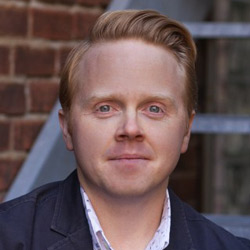 Jeff Goins, author of several books including “The Art of Work”, says it was Steven Pressfield’s “The War of Art” that inspired him to make the leap from marketer at a non-profit to full-time author.
Jeff Goins, author of several books including “The Art of Work”, says it was Steven Pressfield’s “The War of Art” that inspired him to make the leap from marketer at a non-profit to full-time author.
“He really talks about writing not as some sort of imaginative, mystical journey — it really is just work. He believes in the muse and inspiration, but inspiration happens when you sit down and do the work. It doesn’t come and then you write. You write and then it comes.
I got the opportunity early on to interview him for my blog. I asked him, “When does a writer become a writer? When do you get to call yourself a writer?”
And he said, “Forget what everybody else says, you are when you say you are.”
I never forgot that. That was one of the important conversations that made me realize there’s power in our words, and there’s power in believing that “I am this thing”. And now I have to work really hard to prove it to the world, but I am this.
Eventually people will recognize it, if I believe it. And I think there are some things the world will not believe about you until you believe them yourself. And he taught me that.”
What book has inspired you to become a writer, or one that has had a big influence on your writing, and why? Tell me about it in the comments!
Image credit: margolove / flickr
